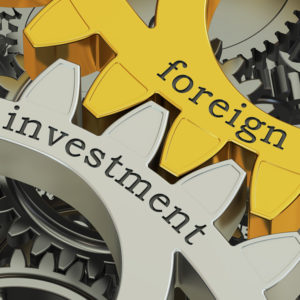Like so many Americans, I was raised to believe that if you were driven, invested wisely and looked for sound business opportunities, you would succeed. But over the last few years, I’ve learned the hard way that even American investments risk interference by foreign governments who don’t respect the fundamental standards of international law.
This year, I joined the ranks of U.S. citizens who have been defrauded by supposed “allies,” with nearly half a billion dollars of international investment on the line. President Trump has made “America First” a central tenet of his administration; it’s my hope he will wield his power to protect American investment abroad.
My venture into international finance began in the early 2000s. After college, I began working as an investment banker focusing on financial and operational restructurings. After managing a family office, I was recruited in 2007 by KGL Investment Company (KGLI). This led to my current role as the investment director of the Port Fund, a private equity fund that pooled investments to back exciting infrastructure projects throughout Asia and the Middle East.
In my role with the Port Fund, I dealt with complex foreign government bureaucracies while producing net returns on the fund’s Asian investments of more than 20 percent per year. We outperformed our competitors and emerged from the uncertainty of the 2008 financial crisis and the Arab Spring unscathed.
Despite this impressive track record, in 2010, rogue individuals within the Kuwaiti government began orchestrating a politically motivated smear campaign to attack us. Ironically, this campaign stemmed from one of our fund’s biggest backers, a Kuwaiti government agency that had given us $85 million to invest.
KGLI successfully sold the Port Fund’s holdings in 2017, with profits nearly double the original investments. However, as the money was in the process of being returned to investors and other stakeholders, an Emirati bank called Noor Bank inexplicably froze the funds, totaling nearly half a billion dollars. It was only later we discovered that the Dubai attorney general ordered Noor Bank to freeze these funds, at the request of the rogue government officials.
Despite the fact that the government of Dubai had fully investigated the money and the transaction and found both complied with all aspects of international law, the “hold” on the funds gave Kuwaiti officials cover to claim they had not been paid while continuing with their harassment tactics. More important, it left our other investors struggling to determine when — or if — they’d ever see their investments returned.
To this day, Emirati authorities continue to hold our money even after Kuwait, as recently as last month, sent explicit directions to release the funds. We now find ourselves caught up in a financial and bureaucratic battle between two Gulf nations, and the possibility that the money may ultimately be stolen remains a major concern.
Our case is by no means unique. Countries like Argentina and China regularly siphon private funds into public coffers through so-called transfer restrictions — rules that allow foreign governments to limit American investors’ ability to move funds out of a country or convert them into a foreign currency. Rather than deal with the ramifications of full-fledged expropriation, these countries have opted for a subtler form of financial coercion, which similarly undermines the rights of Americans abroad.
Interference by foreign governments can affect major corporations just as easily as it can hurt individual investors. Last year, the Venezuelan government set its sights on General Motors’ operations in its country and seized the automaker’s only factory in Valencia — likely an attempt by President Maduro to scapegoat a U.S. company for Venezuela’s country’s economic crisis. As a result, GM took a $100 million hit, a loss that has affected American workers.
Since taking office, President Trump has used the power of his office to correct trade imbalances and strengthen key treaties, putting the interests of Americans at the forefront of his agenda. The same type of pressure must be leveraged against foreign governments that interfere with U.S. investments and U.S. citizens.
America has been a loyal ally to both Dubai and Kuwait throughout the years. Precious American resources and blood have been spent on behalf of these countries in the belief that they would stand with us in upholding the rule of law. But when American financial interests are attacked by rogue officials, it is a signal that our “allies” believe they can act with impunity.
The Trump administration has tools it can deploy to stop this behavior, including the Magnitsky Act, which authorizes sanctions against foreign individuals engaging in corruption. Trump should leverage these sanctions to push Dubai and Kuwait to hold bad actors accountable and restore the faith and confidence of American and international investors in the Gulf.

